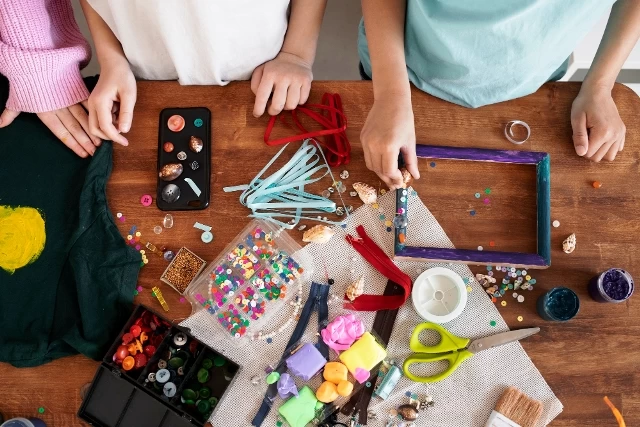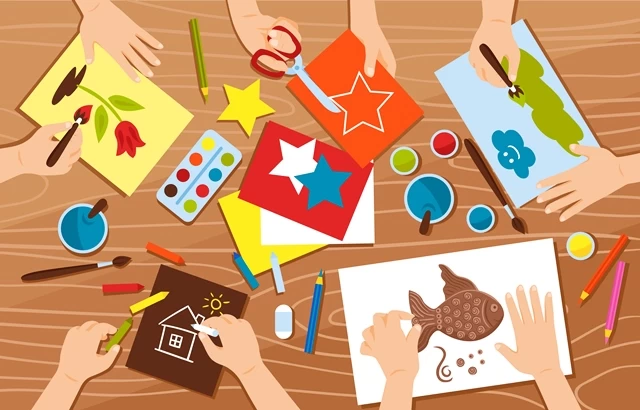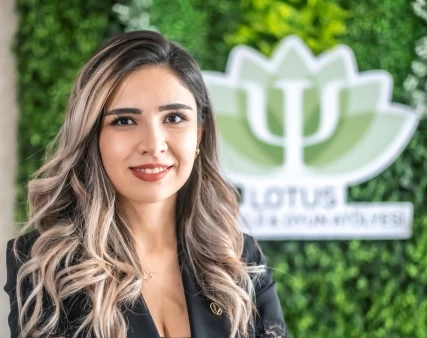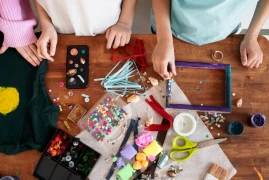
Play Workshop
- Play Workshop
- What is a play workshop? What are its benefits?
- Play is the Language of the Child!
- Happy Parent, Happy Child!
- Preschool – Not Too Late!
What is a play workshop? What are its benefits?
A play workshop for children is a program that provides supportive activities in a safe environment to contribute to their development. This play workshop focuses on the psychological, physical, and cognitive development of children.
Managed by expert psychologists and child development specialists, the play workshop allows children to spend quality time engaging in developmentally appropriate activities.
In today's world, the street and neighborhood culture that we once enjoyed and learned from have diminished. Unfortunately, screens have taken their place, which not only fails to contribute anything positive to a child's development but also negatively impacts all aspects of their growth. With the added impact of the pandemic, our children have started experiencing developmental delays in various areas. These delays manifest as delayed language development or difficulties in personal and social development when faced with crowds. It is at this point that play workshop experts accompany parents on their parenting journey by monitoring and tracking the developmental progress of their children. Considering the child's temperament, developmental stage, and family dynamics, they provide a roadmap for parents.
Play is the Language of the Child!
One of the most significant benefits of a play workshop is enhancing children's communication skills with their peers. Play serves as a language through which children express their inner processes, make observations, and take the initial steps towards communication with others. This can range from exchanging toys to observing and engaging in their friends' play.
In play workshops, games are structured and conducted by psychologists and child development specialists, tailored to each age group every month. For instance, our games in the baby groups that include the oral stage are made using our own chemical-free materials. As exploration during this stage often involves mouthing objects, we ensure that they do not pose harm if accidentally ingested.
Furthermore, the variety of games in our workshops is designed to stimulate children's creativity and imagination, appealing to their five senses. In our workshops, little ones get to experience numerous different games.

Happy Parent, Happy Child!
A play workshop not only benefits children but also provides support to parents on their parenting journey. Parents are provided with guidance on the importance of play in interacting with their children, fostering secure attachment and separation processes, and managing developmental stage-specific challenges. This enables parents to better respond to their children's needs and navigate the parenting process with greater awareness. The play workshop operates on the understanding expressed in an African proverb that "It takes a whole village to raise a child." For the healthy development of children, both community support and informed parenting are crucial. Additionally, the principle of "Happy parent, happy child" holds true in this context, as a parent's happiness influences their child's happiness.
Preschool – Not Too Late!
Play workshops cater to children from 4 months old up to 4 years old. The workshops offer programs for different age groups such as 4-8 months, 12-18 months, 18-24 months, 24-36 months, 36-48 months, and preschool/preparation for kindergarten programs. Early developmental stages are crucial as the period from 0-3 years is vital for brain development, with 80% of it completed during this time. Therefore, it is incorrect to consider it as "too early."
In play workshops, parents accompany their children until the age of 2. During this period, the focus is on strengthening the bond between the parent and child. The safe separation process usually occurs between the ages of 2-4. After the age of 2, separate groups are formed without parental involvement, aiming to provide children with a secure and nurturing separation process. This approach allows children to experience a safe transition before facing challenging separations in settings such as preschool or kindergarten. It also helps prevent traumatic separation anxiety and school refusal.



